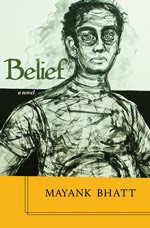With Mahrukh and Che in India, I’m spending most of my evenings watching movies and I’ve seen nearly all the Oscar contenders for the Best Picture category. This evening I saw The Darkest Hour.
It’s a fine film. It shows the gritty determination of Winston Churchill, one of the tallest leaders of the 20th century, a leader responsible to a large extent in keeping the morale of the people of the Allied countries, when Hitler’s rampaging armed forces ravaged Europe.
Gary Oldman, who enacts the role of the British Prime Minister, does justice to him by a fine performance that on occasions slips into unnecessary and incongruous levity.
In a particularly poignant scene in the film, Churchill, while he is being forced to negotiate peace with Hitler by his colleagues in the war cabinet Chamberlin and Halifax, takes a tube ride to gauge the public mood.
The British Prime Minister discovers that the common Englishman and Englishwoman have no desire to broker peace with Hitler, and everyone is willing to die for the country. Churchill begins to recite Thomas Babington Macaulay’s classic poem Lays of Ancient Rome (which incidentally Macaulay wrote while in India).
“…To every man upon this earth
Death cometh soon or late.
And how can man die better
Than facing fearful odds,
For the ashes of his fathers,
And the temples of his Gods..."
This poem is a classic of the British Empire.
The filmmaker Joe Wright takes some liberty in showing a black Londoner reciting along with the Prime Minister. I doubt very much if this actually happened, not the interaction between Churchill and Londoners in the tube, but that among those common people was a black person aware of Macaulay’s poem. This is historical revisionism at best (worst?).
The fact is that both Churchill and Macaulay were products of their age (they were not contemporaries) and both were deeply conservative, with little or no regard for any race other than their own. Both had extremely inimical relations with India and Indians and both considered Indians to be inferior if not entirely despicable.
Macaulay (in)famously proclaimed, “I am quite ready to take the Oriental learning at the valuation of the Orientalists themselves. I have never found one among them who could deny that a single shelf of a good European library was worth the whole native literature of India and Arabia.”
And Churchill, of course, could just not tolerate Indians, and especially Gandhi. He exclaimed in despair, “It is alarming and also nauseating to see Mr. Gandhi, a seditious middle temple lawyer, now posing as a fakir of a type well known in the east, striding half-naked up the steps of the viceregal palace, while he is still organizing and conducting a defiant campaign of civil disobedience, to parley on equal terms with the representative of the king-emperor.”
Churchill is held responsible for the Bengal famine of the 1940s, when he was famously losing to Hitler while fighting him in the air, on the beaches, on the landing grounds, in the fields, in the streets in the hills – everywhere except in the battlefield.
Christopher Nolan’s Dunkirk, which is poetry on celluloid, and, in my view, one of the finest war films ever made, is unfortunately also racially blind, and therefore, imprecise historically.
Historical revisionism was the bane of the communists at one time, but that seems to be becoming all-pervasive in Hollywood.





No comments:
Post a Comment